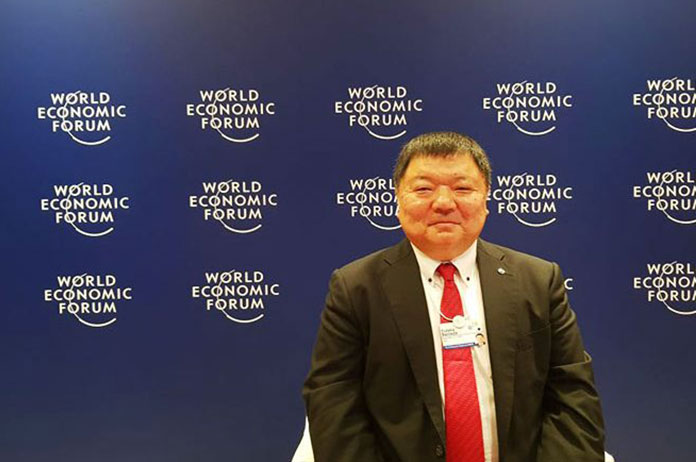Nissan Motors Will Look At Electric Vehicles, Says Official

Cambodia could emerge as a key market for electric vehicles, given the high costs of fuel as well as the need for an environmental friendly mode of transportation in the country, said Yutaka Sanada, head of Nissan’s Asia & Oceania (A&O) operations.
"We are a late bloomer in the Cambodian market. We are still feeling our way around to gauge which models will be well absorbed by the consumers, taking into consideration affordability factors, high cost of fuel, congested roads, and the need for vehicle aesthetics,” Mr. Sanada said to Khmer Times on the sidelines of the ASEAN World Economic Forum in Hanoi last week.
He pointed out that in Cambodia, Nissan has made its presence felt via its long-time Malaysian joint-venture partner, Tan Chong Motors, and the collaboration did not stop there. “We are also in discussion with Mitsubishi Motors to develop electric vehicles for transporting tourists in and around Angkor Wat and other temples to cut down on pollution. Our partnerships and collaborations are widespread, and we do so to find a market niche, share technology, and create operational synergy,” Mr. Sanada said.
Touching on parallel imports and its possible impact on Nissan’s vehicle range, he said the company is continuously exploring ways to overcome such issues and, if possible, to co-exist as it was virtually “impossible” to eliminate parallel imports. He said Nissan was focusing on the next-generation vehicles and wanted to avail its models to the customers through better after-sales service, better vehicles, and not to be overly burdened for the time being by parallel imports in its drive to increase its market share.
“Sometimes these kinds of imports meet specific customer needs as Nissan could not bring all its models into Cambodia. Our models are distributed in specific countries and are market-focused. Not all models are distributed or released at the same time in every market where Nissan has a presence,” Mr. Sanada stressed.
Mr. Sanada’s many achievements at Nissan include launching the Dayz series and establishing it as a core model for the Japanese market; reviving the GT-R; and brokering a strategic partnership with Daimler, which is now in its seventh year.
He added that Nissan is investing in a portfolio of “green” technologies, including clean diesels, efficient internal-combustion engines, hybrids, and the centerpiece of its product strategy: Zero-Emission vehicles, such as battery electric vehicles and fuel cell vehicles.
The key driver of Nissan’s passion is captured in the word “zero.”
“We are preparing a vehicle lineup that will be totally neutral to the environment, beginning with the electric vehicle. With no CO2 emissions and zero particles, our electric vehicle will be the most environmentally friendly mass-produced vehicle on the market. We are developing a range of high-quality electric vehicles that are safe, well-engineered, attractive, affordable, and fun to drive,” according to the company’s website.
There is also the Renault-Nissan Alliance, which is promoting the development and production of Zero-Emission vehicles and the construction of infrastructure. They forged more than 100 Zero-Emission partnerships with national and local governments, electric power companies, and other organizations.
“Zero-Emission leadership is our commitment, and we are taking all the initiatives and making all the necessary investments to make it happen. Zero-Emission mobility is our passion, a true breakthrough and a key to our future.”